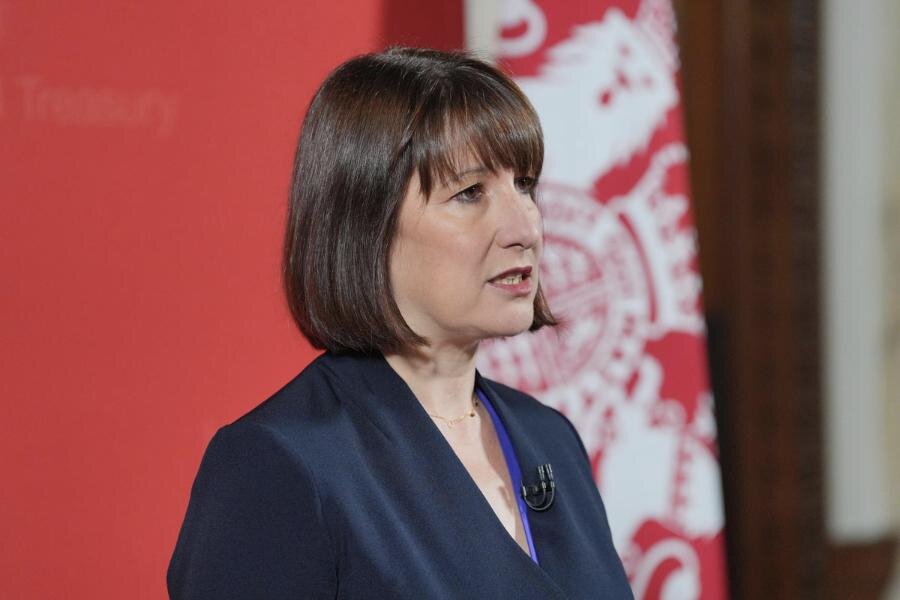CBI boss calls on Reeves to review Labour tax promises
The head of Britain’s most influential business lobby group has urged Chancellor Rachel Reeves to reconsider Labour’s tax pledges, arguing that worsening economic conditions require urgent reform.
Rain Newton-Smith, chief executive of the Confederation of British Industry (CBI), said “the time for tinkering is over” in a direct appeal to Reeves ahead of the 26 November Budget. Writing in The Guardian, she warned against “slavish adherence” to promises made before the 2024 election, saying the world has changed since Labour committed not to raise income tax, national insurance, or VAT.
Her comments come days after the resignation of Deputy Prime Minister Angela Rayner over a property tax breach, which has already unsettled Labour and heightened scrutiny of Reeves’s economic strategy.
Labour’s manifesto pledge under strain
Labour’s manifesto last year ruled out rises in the three main sources of Treasury revenue: income tax, national insurance and VAT. Reeves has repeatedly insisted that “the payslips of working people” would be protected.
Newton-Smith, however, argued that new global pressures and downgraded economic forecasts mean the government needs more flexibility. “The world is different from when Labour drafted its manifesto, and when the facts change so should the solutions,” she wrote.
Calls for wider tax reform
The CBI chief said businesses could not shoulder another round of heavy increases after Reeves’s first Budget in October 2024, which was widely criticised by employers. Instead, she urged ministers to consider broader reforms such as changes to business rates, VAT thresholds for small firms, and stamp duty.
She also cautioned that Labour’s planned employment rights bill could deter hiring in its current form, adding complexity and costs for firms already under pressure.
Mounting fiscal pressures
The Office for Budget Responsibility (OBR) is expected to revise down growth forecasts this autumn, potentially leaving Reeves with a multi-billion-pound shortfall to meet her fiscal rules. Independent economists estimate the gap could reach £20bn to £30bn over the next five years.
The Resolution Foundation think tank has warned that raising such sums without touching the largest taxes risks distorting behaviour and placing disproportionate burdens on smaller groups.

Labour’s response
Despite mounting calls for flexibility, Reeves has shown no sign of breaking from Labour’s manifesto. A Treasury spokesperson reiterated: “We are protecting payslips for working people by keeping our promise not to raise the basic, higher, or additional rates of income tax, employee national insurance, or VAT.”
Prime Minister Keir Starmer has also urged his ministers to prioritise growth and stability following Rayner’s resignation. At a cabinet meeting, he told colleagues to “move from fixing the foundations to driving forward the growth and national renewal that delivers for working people.”
Balancing business and union pressure
The debate over tax comes as unions demand Labour follow through on its promised employment rights package, despite business concerns. At the TUC conference in Brighton, senior Labour figures sought to reassure delegates the bill remained on track.
Union leaders have warned the government against retreating, arguing that protecting workers’ rights is a defining difference between Labour and Nigel Farage’s Reform party, which has gained ground in recent polling.
Political risks for Labour
The debate over Labour’s tax strategy highlights the fragile position Reeves and Starmer now face. Any decision to break manifesto promises risks accusations of betrayal from voters, while sticking rigidly to them could force damaging cuts elsewhere or more complex tax rises that weigh on small groups.
Rayner’s resignation has further exposed Labour’s vulnerabilities, creating the impression of instability just as Reform UK gains ground in the polls. Opposition parties have already seized on the tension, portraying Reeves as trapped between business, unions, and her own fiscal rules. The coming Budget could therefore determine not just the government’s economic direction, but also its political credibility.

Final Summary
Reeves pressed on manifesto tax promises
The CBI’s intervention puts Rachel Reeves under growing pressure as she prepares her 26 November Budget. With slowing growth forecasts, Labour’s rigid tax pledges look increasingly difficult to sustain.
Reeves faces a delicate balancing act: reassuring voters that their take-home pay is safe, addressing business concerns over competitiveness, and holding firm with unions on workers’ rights. The Budget is likely to prove a defining moment for Labour’s economic credibility and its wider political future.











